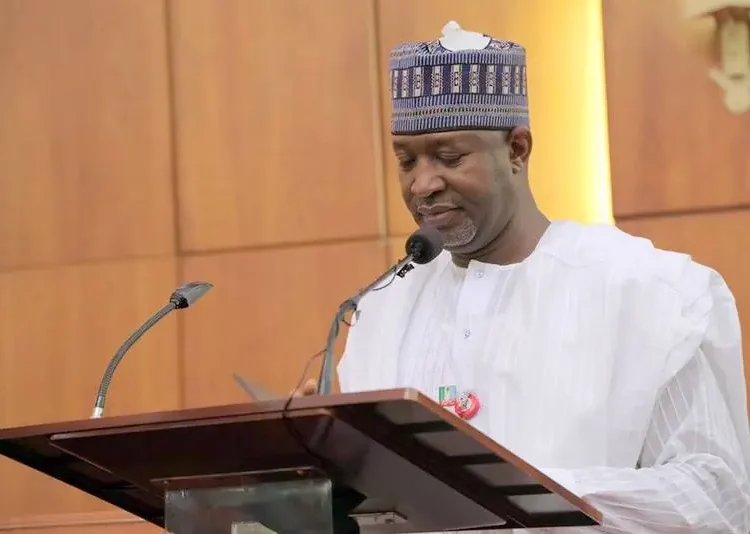The aviation industry globally thrives on safety, but the current crisis rocking Nigeria’s aviation sector is threatening its safety and the trust it is presently enjoying from Nigerians, stakeholders’ and operators in the sector.
The crisis, however, needs to be nipped in the bud before it degenerates into a national catastrophe.
For instance, the astronomical increase in aviation fuel, also known as, Jet-A1 from N190 per litre in March to over N800 per litre, the devaluation of the Naira and inability of airlines to access foreign exchange to replace worn out parts, to mention but a few.
The above mentioned have plunged the sector into huge difficulties and has made it extremely difficult for the sector to grow by threatening investors’ confidence.
Instead of experiencing growth in the system, the sector has rather gone from one crisis to the other.
Firstly, it was local airline operators threatening to shutdown their operations due to the huge price of aviation fuel. After government’s intervention, foreign airlines threatened to withdraw their services over inability to access its huge earnings that were trapped in the country as a result of foreign exchange scarcity.
Also, the shutdown of operation by Dana and Aero Contractor airlines further exposed the deepening crisis rocking the sector as it shrank the number of commercial airlines operating from 10 to eight. The two airlines, mentioned the harsh operating environment as reasons responsible for the shutdown of their operation.
Recently, the suspension of Azman Air by the Nigerian Civil Aviation Authority (NCAA), for owing the Federal government over N1.2billion and the non renewal of its Air Transport License (ATL), however, showed that the sector deserved attention before it finally shuts down.
The NCAA has recently warned the struggling airlines that inability to refund the Ticket Sales Charges (TSC), will threaten the renewal of their Air Transport License (ATL).
The aviation sector, stakeholders have argued, is very important to every nation’s economy due to the connectivity it provided to both human and cargo.
However, if the current crisis is not nipped in the bud, sooner or later, the nation might have its very important sector shutdown.
Speaking to LEADERSHIP, the former secretary general, National Union of Air Transport Employee (NUATE), Olayinka Abioye, said the activities in the sector, gives room for speculation as people will create uncertainties in the sector.
He, however, warned that agencies and stakeholders shouldn’t allow the situation to degenerate to where airlines will be sanctioned first before they comply.
He said, “If we allow NCAA to do their job as in the case of Azman. The airline was sanction on Thursday and under 24hrs, Item 3 and 5 of the open area given to them were complied with. And NCAA have to give them approval to commence operation, though it is not an ideal system because it gives room for speculation and people read meanings to a lot of things but I am happy that the DG NCAA came out to highlight that out of the five items listed only item 3 and 5 are pending and we are satisfied by that.”
“We don’t want our situation to generate or degenerate to where airlines will be sanctioned first before they comply. We want compliance at all level so that there won’t be any reason for NCAA to complain about operation.
“As much as we appreciate what NCAA is doing we want them to extend the oversight. There’s no reason for airlines to delay more than 30 minutes, but this is Nigeria, we do not have the technological base like the one overseas where the computer system will go wrong and people would be delayed for over 24hrs and even in places it happened there are measures to curtail that no passenger will not suffer unjustly.”
However, speaking on how to revive the sector, the former NUATE scribe, the sector is not only a revenue generating agency but also a job creating sector that must set it’s priority right to achieve its purpose.
“In the sector, we have not been able to put our house in order due to greed and misplaced priority. Airline owners once they make billions, they take the profit into hotel business, banking or wherever in the guise of diversifying. Whereas, aviation requires money round the clock as they will be paying for fuel, except there is an agreement with the fuel supplier to be paid every month or weekly but also, they don’t trust airline operators because most of the are still owing fuel marketers.”
“There is also nothing wrong with aviation sector. Airline business is a private business. One should determine the business model they want to engage and this model is what will determine the staff strength, the machine to use and so on.
“For instance, in Aero contractor’s case, it was a mismanaged situation because i am conversant with their history from the beginning. It is just that our people are not sincere, Ado Sanusi came to Aero and try to manage things when it became successful, he was removed and they brought in another person who listened to his advisers as well.
“You cannot hire an airline from a private firm, a 103 seater aircraft and tell them you are giving 3 seats out of the total seats. You have given them a license for operation which does not make sense. Even if it is to make 300 frequency per day with that 3 seats, the bulk of the money go to the owner of the airline. How do you compensate for the services of engineers, pilot and other workers who make the aircraft fly? Those are the issues.
“The aviation sector is a big field for employment, it has multiplier effect vis a vis employment. Aircraft Pilot, Engineers, ground staff, Oil marketers, Catering and so on, but We have not been able to put our house in order due to greed and misplaced priority.
“There is no justification to owe govt agencies, passenger service charge is collected on behalf of government and not remitted its a lot of situation that one has to be punished.
Stakeholders complaint about what the Bilateral Air Service Agreement (BASA), contained asking why British Airways flew into Nigeria 30 times in a week and there is no single Nigerian airline flying to the United Kingdom 2 times a week. Where is the sense of our reciprocity?,” He asked rherorically.
So, these are issues that are in the books but what is wrong with our ministry of aviation not ensuring that we find airlines in Nigeria utilizing those reciprocity routes that are in the books. Except someone want to tell me that if Emirates come here 30 times in a week, we don’t have a single airline in Nigeria that would be allow the same frequency, same reciprocity.
“Meetings and discussions are been held in a platform aviation policy and strategy. The volume of observation, suggestion and recommendation is enough to float 10 airlines and operate them successfully because we have people with past experience talking everyday making suggestion observing and the minister have friends in this platform reading the observation. All I want is to put all these suggestion into use without the need of hiring any expert to midwife the process for us, as we have reputable and well experienced people who can run Nigeria for us without bring people from outside.”
Also speaking to LEADERSHIP, the secretary general, Aviation Round Table Initiative (ARTI), Capt. John Ojikutu (rtd), queried NCAA for nor not conducting regular economic audit on local airlines.
He said if economic audit is conducted, the debt airline is owing on TSC wouldn’t be as much as they were now
“I still maintain that, but for the blockage of foreign airlines tickets sales earnings in the Central Bank of Nigeria (CBN), what has been the cover-up in the enforcement of the Economic Regulations in the Nig CARs could be dead.
“First, it was Aero, next Dana. The N1.2bn debts owed by Azman on TSC/CSC are not for one year but for many years and the questions to ask the NCAA are, how regular are economic audits conducted on the domestic airlines or when last was one conducted on Azman or what was the report?” Ojikutu asked.
Ojikutu, further stated that if not for foreign airlines operating in the country, the sector would have been extinct.
“If the domestic airlines in particular are not paying for the necessary services provided and are not paying the necessary charges on regulatory charges, the industry can’t be developed and, therefore, be sustained. As I say always, without the consistent operation of the foreign airlines and their sincerity in paying regularly for all the necessary charges, our industry would have expired long before today and there would not be employment for the many that there are today in our airports,” he concluded.





